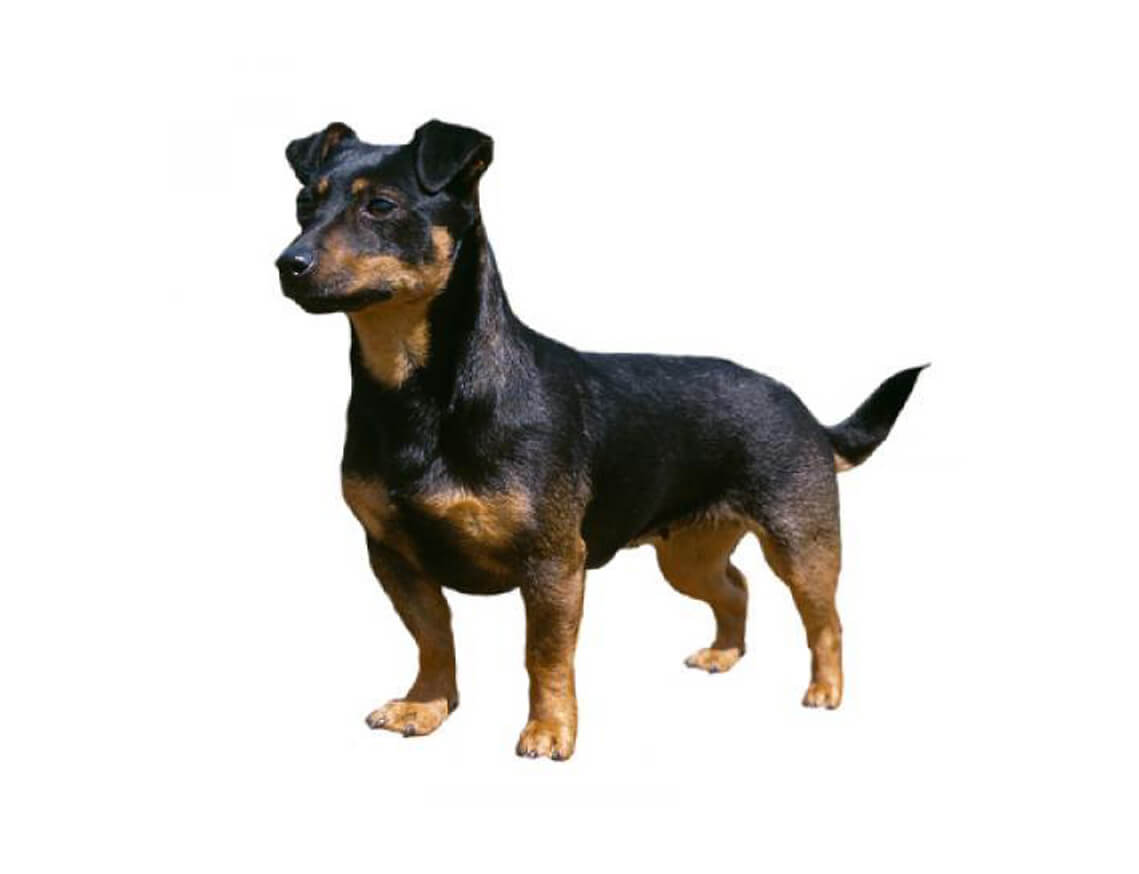
Lancashire Heeler
The Lancashire Heeler is a small, sturdily built dog. They are slightly longer than they are tall and the front feet turn slightly outwards. The ears are relatively large and stand erect. The short, thick coat comes in black and tan or liver and tan. Ideally adult males measure 30cm at the withers, and females 25cm. They range in weight from 3-6kg.
The need-to-know
- Dog suitable for owners with some experience
- Some training required
- Enjoys vigorous walks
- Enjoys walking one to two hours a day
- Small dog
- Minimum drool
- Requires grooming once a week
- Non hypoallergenic breed
- Chatty and vocal dog
- Guard dog. Barks and alerts
- May require training to live with other pets
- May require training to live with kids
Personality

The Lancashire Heeler dog is a friendly little breed that gets on well with people. Some can be a little nervous and somewhat intolerant of other dogs. Early socialisation with people and other pets is a must. They are ideal dogs for active families with older children but are not really recommended as a first dog for homes with babies and toddlers.
History and Origins

The history of the Lancashire Heeler dog breed is a bit of a mystery. They have been known to exist since the 1600s when they were used as farm dogs and to drive cattle; they also used their hunting instincts to catch rabbits and rats. They are thought to have come about through crosses of the Welsh Corgi and the Manchester Terrier.
Nutrition and Feeding

Small dogs have a fast metabolism, meaning they burn energy at a high rate, although their small stomachs mean that they must eat little and often. Small-breed foods are specifically designed with appropriate levels of key nutrients and smaller kibble sizes to suit smaller mouths. This also encourages chewing and improves digestion.
Exercise

The Lancashire Heeler dog does enjoy exercise and is ideal for active people. They can adapt to living in a town or country setting but must have free space in safe areas to exercise in. If they have access to a garden it must be made escape proof, as they will get out the smallest hole or over the smallest fence. About an hour's daily exercise is a good guide for an adult dog.
Other Information

Health and Common Issues
The Lancashire Heeler can develop several inherited eye diseases and so eye testing is recommended. Like many small breeds, they can also suffer from kneecaps that may temporarily slip out of place (luxating patellas).
Best Family Dog Breeds
While many dogs are traditionally thought of as being good with children, all dogs and children need to be taught to get on with and respect each other, and be safe together. Even so, dogs and young children should never be left alone together and adults should supervise all interactions between them.